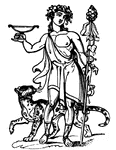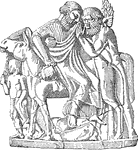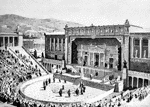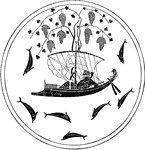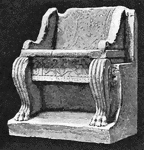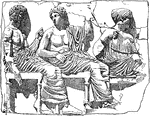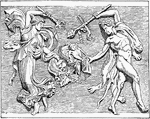Clipart tagged: ‘Dionysus’
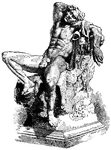
The Barberini Faun, or Drunken Satyr
Illustration of the life-size marble statue located in Munich, Germany. It was found in 1620 in a moat…
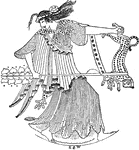
Maenads
In Greek mythology, Maenads were the female followers of Dionysus, the most significant members of the…
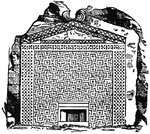
Tomb of Midas
"Midas was, in Greek legend, a King of Phrygia. For his kindness to Silenus he was promised by Dionysus…

Silenus - Marble Sculpture
"In Greek mythology, a divinity of Asiatic origin, the foster-father of Bacchus, and leader of the satyrs,…
